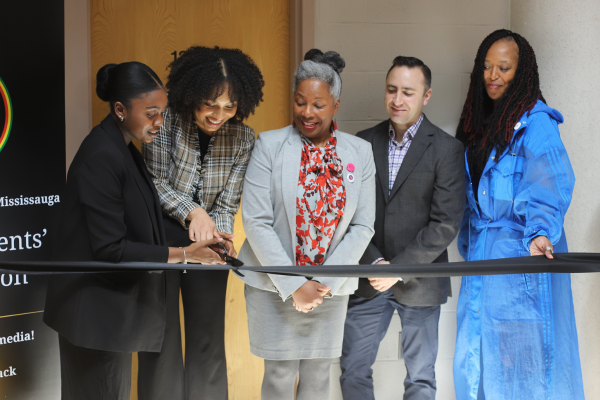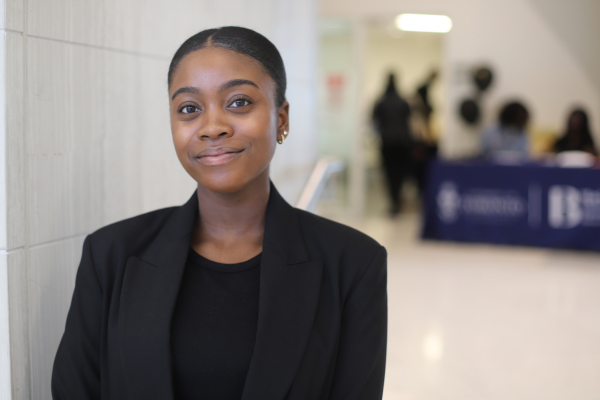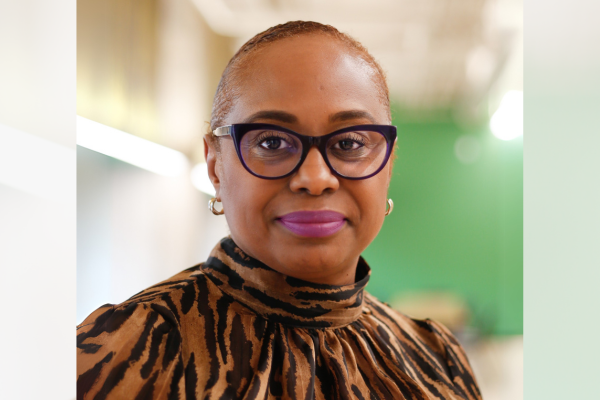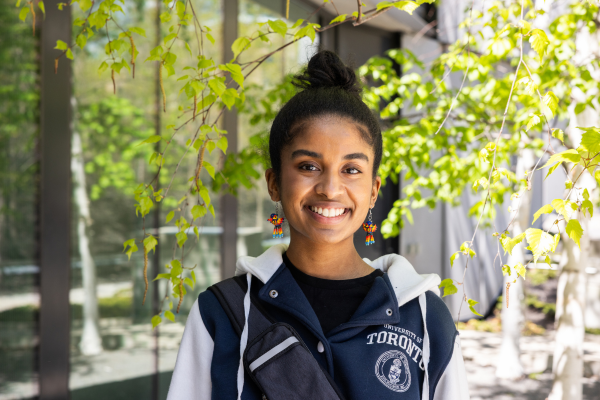‘It’s about making an impact and driving meaningful change’: UTM alum reflects on research, leadership and community


Sidoné Grange may have graduated from the University of Toronto Mississauga this month, but she’s not quite finished with her time on campus.
A two-time recipient of the Natural Sciences and Engineering Research Council of Canada (NSERC) Undergraduate Student Research Award (USRA), Grange is spending her final summer on campus in the Short Lab. Led by Associate Professor Steven Short of the department of biology, the lab uses molecular tools to study viruses in aquatic environments.
Grange, who majored in biology for the health sciences, leaves campus having solidified her love of research and deepened her passion for science.
“This experience has shown me how much there is to discover at even the smallest scale,” Grange says. “Exploring the molecular interactions between viruses and their hosts has deepened my curiosity and affirmed my commitment to a future in medicine.”
For the past year, Grange has studied Chrysochromulina parva (CpV), a type of microscopic algae found in freshwater lakes and rivers that is vulnerable to viral infections. Water samples from Lake Ontario revealed that CpV is infected by four major viruses: CpV-BQ1, CpV-BQ2, CpV-BQ3 and CpV-BQ4.
During her first NSERC placement in the Short Lab, Grange worked to confirm the genome sequence of CpV-BQ3, while also helping to contextualize the virus’ structure and characteristics. This summer, she’s turning her attention to CpV-BQ4 to examine its infectivity and compare its effects on CpV cells to those caused by other viral strains.
“The USRA was one of my first introductions to lab work. It gave me the opportunity to learn and build skills in scientific methods and techniques and made all the difference in successfully applying to post-graduate programs,” says Grange, who will begin a master’s in biomedical engineering at Toronto Metropolitan University this fall.
While she thrives in the lab, Grange says her ultimate goal is to work as a medical professional, interacting directly with patients.
In 2020, she joined the Summer Student Research Program at Brampton Civic Hospital through the William Osler Health System. There, she investigated the prevention, assessment and treatment of pressure injuries, also known as bedsores, which commonly affect hospitalized patients.
“During my time at the hospital, I spoke with patients, listened to how they were feeling, and heard their perspectives on the treatment they were receiving,” Grange says. “That experience really stuck with me and helped solidify my vision for the future.”

Beyond her academic achievements, Grange has also made a lasting impact on student life.
As community engagement coordinator with Caribbean Connections, she helped organize a fundraiser to provide back-to-school supplies for students in Haiti in 2024. She also served as the co-president of the Black Students’ Association (BSA) for three terms, where she started the Black Student Mentorship Program. She also helped launch the interim Black Student Space at the Kaneff Centre, which officially opened in April 2024.
An initiative led by the BSA, the space offers a dedicated environment for Black students to connect, collaborate and build community.
Grange, who joined the BSA during her first year amid the COVID-19 pandemic, says creating the space was about recognizing a real need.
“When we returned to campus, I realized how important it was for Black students to have a space to gather, feel seen and supported,” Grange says. “For me, it’s about making an impact and driving meaningful change.”

Now, she feels a special sense of pride knowing her brother, who recently started at U of T Mississauga, will have that space from his very first day.
“The staff were incredibly supportive, and together we’ve created a space that feels like home,” Grange says. “It’s a warm environment that I know new students will feel welcome in, too.”
Grange credits several mentors for supporting her journey, including Martin Kengo, manager of Black Initiatives, who played a key role in advancing BSA projects. She also acknowledges Short and Dave Armstrong, an assistant professor in the department of chemical and physical sciences, for guiding her through her research experiences.
Grange encourages new students to embrace opportunities early.
“I’m really grateful that I got involved in research and other opportunities right after my first year,” Grange says. “If you can, start early, but don’t stress if things don’t happen right away. Stay open, be proactive and trust that the right opportunities will come at the right time.”







